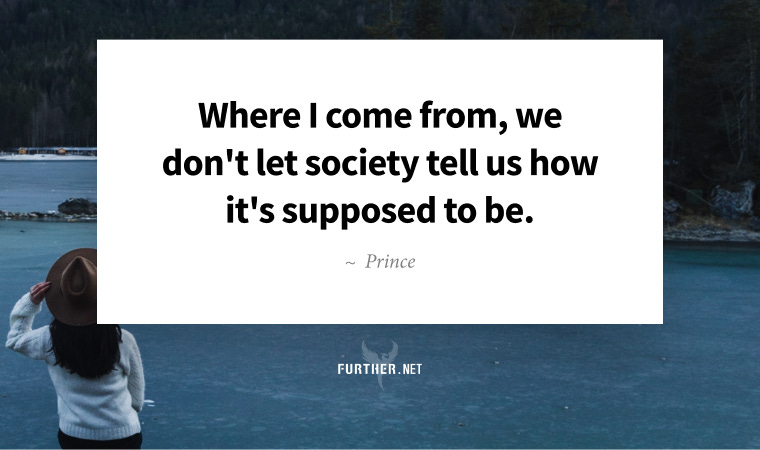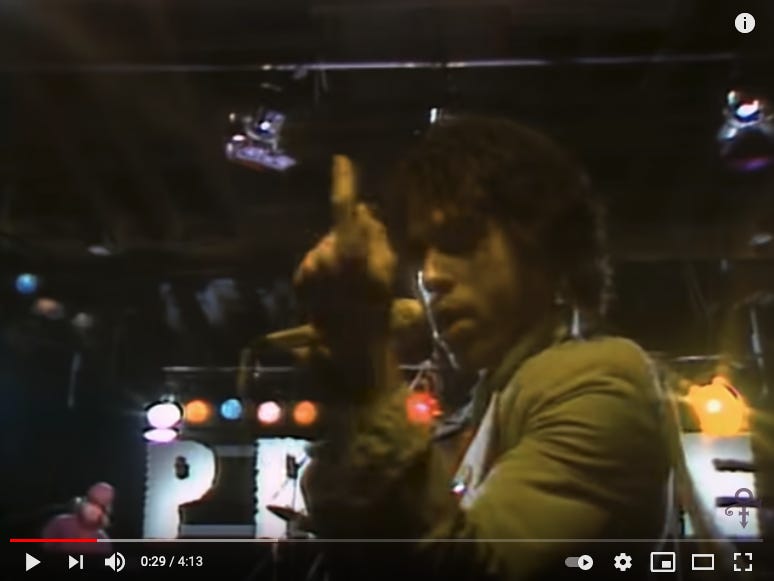Are You Dancing to Society’s Soundtrack?
It's now time to start composing your greatest work.
Join 19,000+ people looking to live their best life at midlife by grabbing our free resource: The Further Guide to Unretirement Planning. Or upgrade to Further Premium for the full experience.
In the last decade of his life, Ludwig van Beethoven composed the greatest triumph of his remarkable body of musical work — the Ninth Symphony. That alone should be motivation to keep going at midlife.
But what's truly remarkable is that Beethoven was deaf. His hearing began to decline around age 30, and by 45 it was completely gone.
When the Ninth Symphony premiered in 1824, Beethoven insisted on conducting from the stage in Vienna. At the conclusion of the performance, the hall erupted with cheers and applause, but Beethoven didn't know. Twenty-year-old soloist Carolina Unger turned him toward the crowd, and he saw the rapturous audience throwing their hats and hands in the air.
Some critics consider Beethoven's Ninth to be the greatest musical piece ever written. But given the despair Ludwig endured due to his earlier hearing loss, he almost gave up on life itself before he created it.
Arthur Brooks, writing for the Washington Post, recounts how Beethoven raged against the decline of his hearing and considered suicide due to his disability:
Beethoven confided in friends that without sound, his life would be meaningless. One close to him wrote of his laments: “It is a cry of revolt and of heart-rending pain — one cannot hear it but be shaken with pity. He is ready to end his life; only moral rectitude keeps him back.”
Here's the fascinating thing to think about: What if instead of overcoming deafness to create arguably the greatest work of classical music ever, Beethoven was able to compose his iconic Ninth because he was deaf?
Brooks argues that without the influence of hearing the competing compositions of his time, Beethoven was able to imagine a work of music that was truly phenomenal:
Deafness freed Beethoven as a composer because he no longer had society’s soundtrack in his ears.
Brooks tells Beethoven's story as a metaphor for aging. He's pushing back against the stereotype that midlife is the beginning of the end, arguing instead that it should be viewed as the beginning of your best life stage yet.
Maybe we've lost our youthful appearance, or we're stuck on a lower rung of the career ladder than we prefer, or our social status has diminished. But Brooks asks you to consider that these "losses" are actually the catalyst for greatness (or at least happiness).
You might finally define yourself in new ways, free from the boundaries you set for yourself based on the expectations of others.
This is exactly what begins around age 50. As the U-shaped happiness curve turns upward from rock bottom, you start to care less about the forms of achievement and status you're supposed to accumulate, and instead start investing in what's important to you.
In other words, you no longer feel compelled to dance to society's soundtrack. You start to tune out the sound of so-called success that's been in your ears since you were young, and instead define success in terms that make sense for yourself.
This can be the beginning of a true ascent toward self-actualization. Your drive to improve becomes a function of living the life you want, without someone else's context forced upon you:
You focus on health and wellness, not to be thin or buff for others, but to have the strength to carry on both in cardiovascular fitness and core musculature.
You gain wealth not to impress the neighbors, but to provide for you and yours while also reducing the number of people you have to answer to.
And you grow as a person because that's why you're here — to become the best version of yourself possible, just for the sake of the experience.
There are people who feel they've fallen short of their goals, and others who have excelled by society's standards. Surprisingly, both types often experience dissatisfaction at midlife.
If that's the case, neither group has lost anything. Instead, we all have the gift of liberation from chasing the wrong things. It's now time to start composing your greatest work.
Keep going-
P.S. Derek Coburn's new book Let's Retire Retirement: How to Enjoy Life to the Fullest ― Now and Later launches today. I’ve read an advance copy, and it's great stuff.
You can also hear from Derek on the Further podcast. But pick up a copy of the book first!
further: destinations
Portugal Residency Visas: A Complete Guide
Everywhere you look, people are labeling yet another country as the “next Portugal.” But what if the next Portugal for you is… Portugal?
The country remains one of Europe's most attractive destinations for those seeking residency, offering multiple visa pathways to suit different circumstances and goals.
Sorá, Panama: Why This Ancient Mountain Settlement Could Be Your Next Home Base
Picture this: You're answering emails while sipping locally-grown coffee on your terrace, surrounded by mist-covered mountains and the kind of silence that lets you actually think.
No traffic. No construction. Just you, your laptop, and a view that stretches to both the Pacific and Caribbean on clear days.
further: flashback
🎶 Prince - Uptown, Dirty Mind, 1980 🎶
If you recognized the Prince quote in the graphic up top as a lyric from Uptown, here's your reward. I honestly feel bad for people who don't know Prince's music from before Purple Rain and 1999. (YouTube)
further: sharing
Enjoy this issue? Please forward this email to friends or share by clicking below:
Thank you for sharing Further!




The very thing that we're hanging and clutching onto is the very thing that if we let go will set us free and expand us.
Exactly, maybe I am where I am because I did not look for my own path. It's high time to follow my own path.